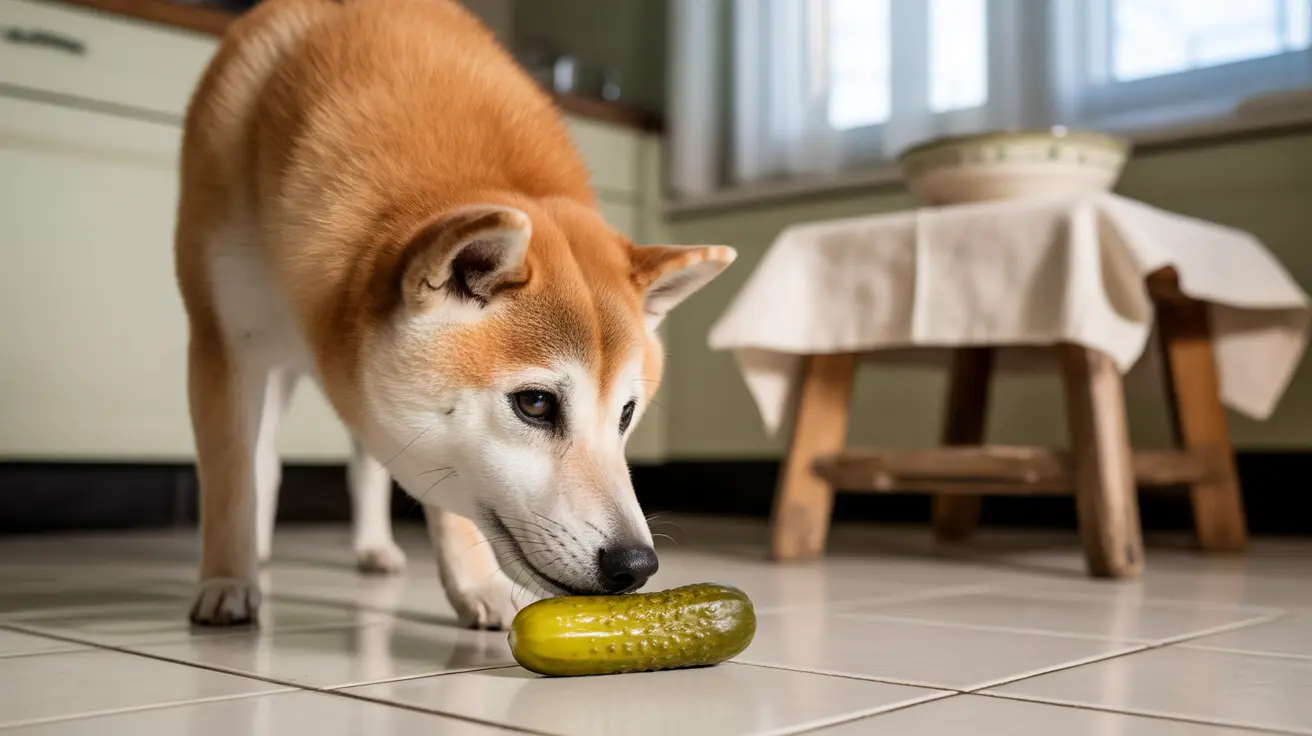If you've ever wondered whether sharing your favorite pickle with your furry friend is safe, you're not alone. As pet parents, we often want to share our snacks with our dogs, but when it comes to pickles, caution is necessary. Let's explore everything you need to know about dogs and pickles, including potential risks, health concerns, and safer alternatives.
While pickles aren't typically toxic to dogs, they contain several ingredients that could be harmful to your canine companion. Understanding these risks is crucial for maintaining your dog's health and well-being.
Understanding Pickles and Their Components
Pickles are cucumbers that have been preserved in a brine solution containing vinegar, salt, and various spices. While the base cucumber is safe for dogs, the preservation process introduces several problematic ingredients:
- High sodium content from brine
- Vinegar and preservatives
- Potentially toxic spices and seasonings
- Added sugars in some varieties
- Possible harmful ingredients like garlic or onions
The Sodium Problem
The most significant concern with pickles is their high sodium content. Dogs have a much lower tolerance for salt than humans, and excessive sodium intake can lead to serious health issues, including:
- Dehydration
- Increased blood pressure
- Kidney strain
- Potential sodium ion poisoning
Health Risks of Feeding Pickles to Dogs
Beyond the sodium content, pickles present several other health concerns for dogs:
Immediate Risks
- Digestive upset and stomach pain
- Excessive thirst and urination
- Vomiting and diarrhea
- Possible allergic reactions to spices
Long-term Concerns
- Cardiovascular issues from high sodium intake
- Kidney problems
- Weight gain from sweet pickles
- Potential anemia from garlic or onion exposure
Safe Alternatives to Pickles
Instead of pickles, consider these healthy alternatives that your dog can safely enjoy:
- Fresh cucumber slices
- Baby carrots
- Green beans
- Apple slices (without seeds)
- Watermelon (seedless)
Proper Serving Sizes
When offering safe alternatives, follow these general guidelines:
- Small dogs: 1-2 small pieces
- Medium dogs: 3-4 pieces
- Large dogs: 5-6 pieces
What to Do If Your Dog Eats Pickles
If your dog consumes pickles, don't panic. Monitor them for these symptoms:
- Excessive thirst
- Vomiting or diarrhea
- Lethargy
- Loss of appetite
- Unusual behavior
Contact your veterinarian if you notice any concerning symptoms or if your dog has consumed a large quantity of pickles.
Frequently Asked Questions
Can dogs safely eat pickles or is it harmful to their health?
While pickles aren't immediately toxic, they're not recommended for dogs due to their high sodium content and potentially harmful ingredients like garlic, onions, and spices. The risks outweigh any potential benefits.
What are the risks of feeding pickles or pickle juice to my dog?
The main risks include sodium overload, dehydration, digestive upset, and potential toxicity from ingredients like garlic or onions. Pickle juice is especially dangerous due to concentrated sodium and seasonings.
Are certain types of pickles, like dill or sweet pickles, better or worse for dogs?
While dill pickles might have fewer harmful ingredients than sweet or spicy varieties, no pickles are recommended for dogs. Sweet pickles contain added sugars, while spicy pickles can cause digestive distress.
What symptoms should I watch for if my dog accidentally eats pickles?
Monitor for excessive thirst, vomiting, diarrhea, lethargy, and unusual behavior. In severe cases, watch for signs of sodium poisoning like tremors or seizures.
What are some safe and healthy alternative snacks to give my dog instead of pickles?
Safe alternatives include fresh cucumber slices, baby carrots, green beans, apple slices (without seeds), and watermelon (seedless). These provide similar crunch and freshness without the risks associated with pickles.
Conclusion
While sharing food with our pets can be tempting, pickles should be kept off your dog's menu. Instead, focus on providing safe, healthy alternatives that can satisfy their cravings without risking their health. Always consult with your veterinarian before introducing new foods to your dog's diet.






